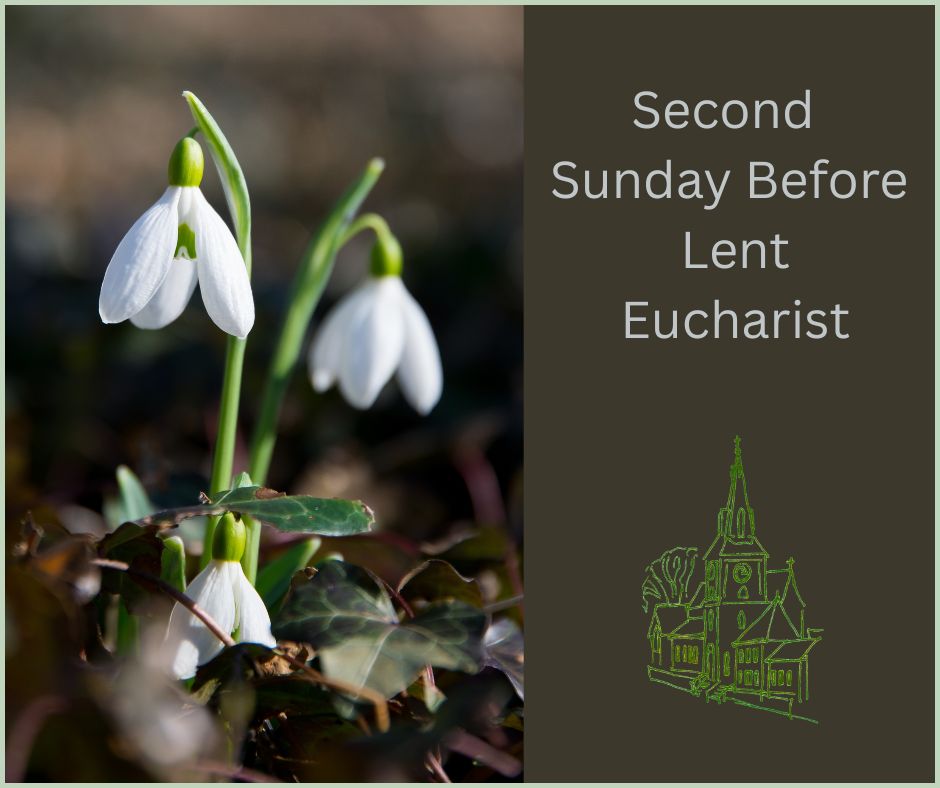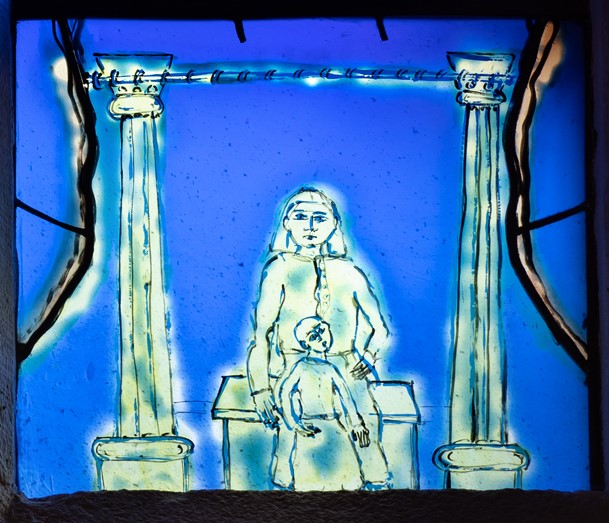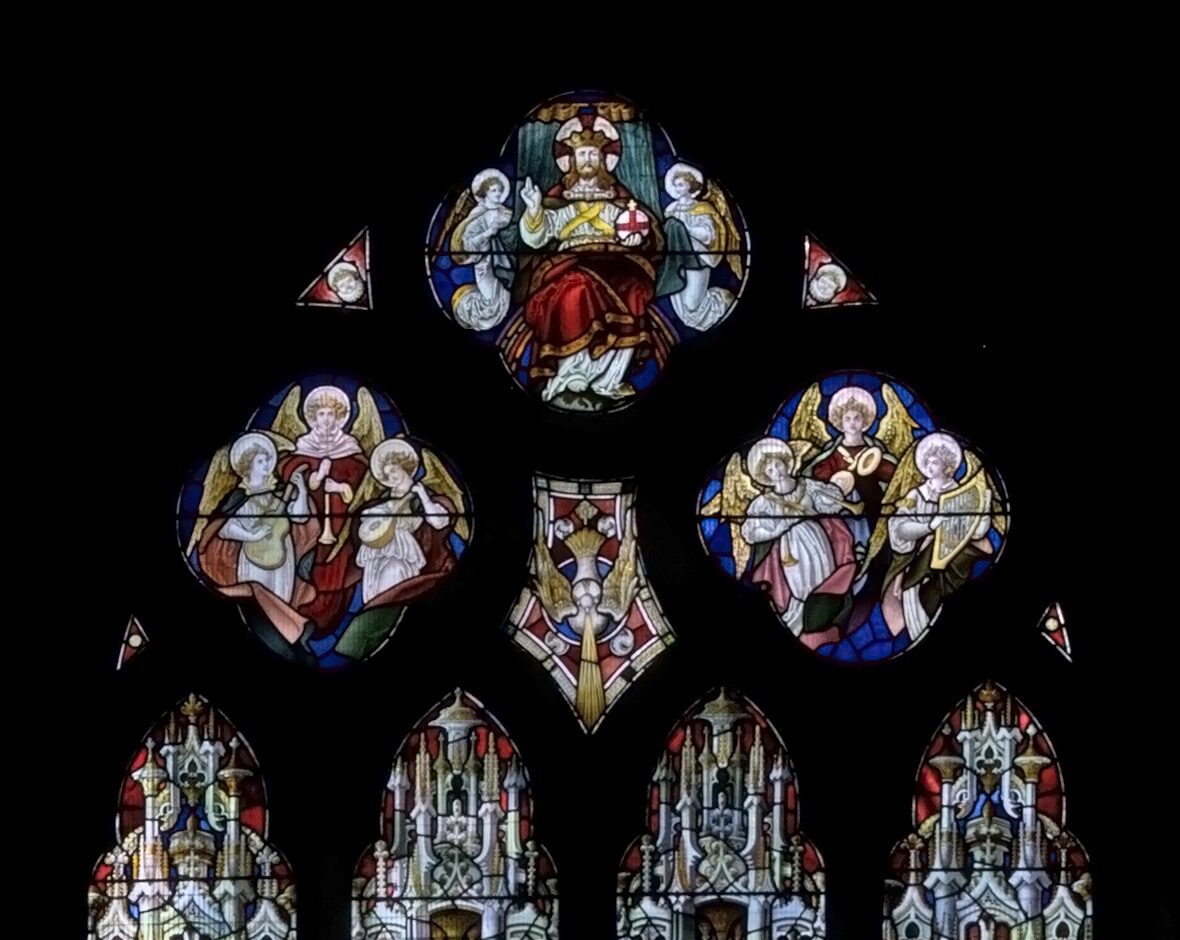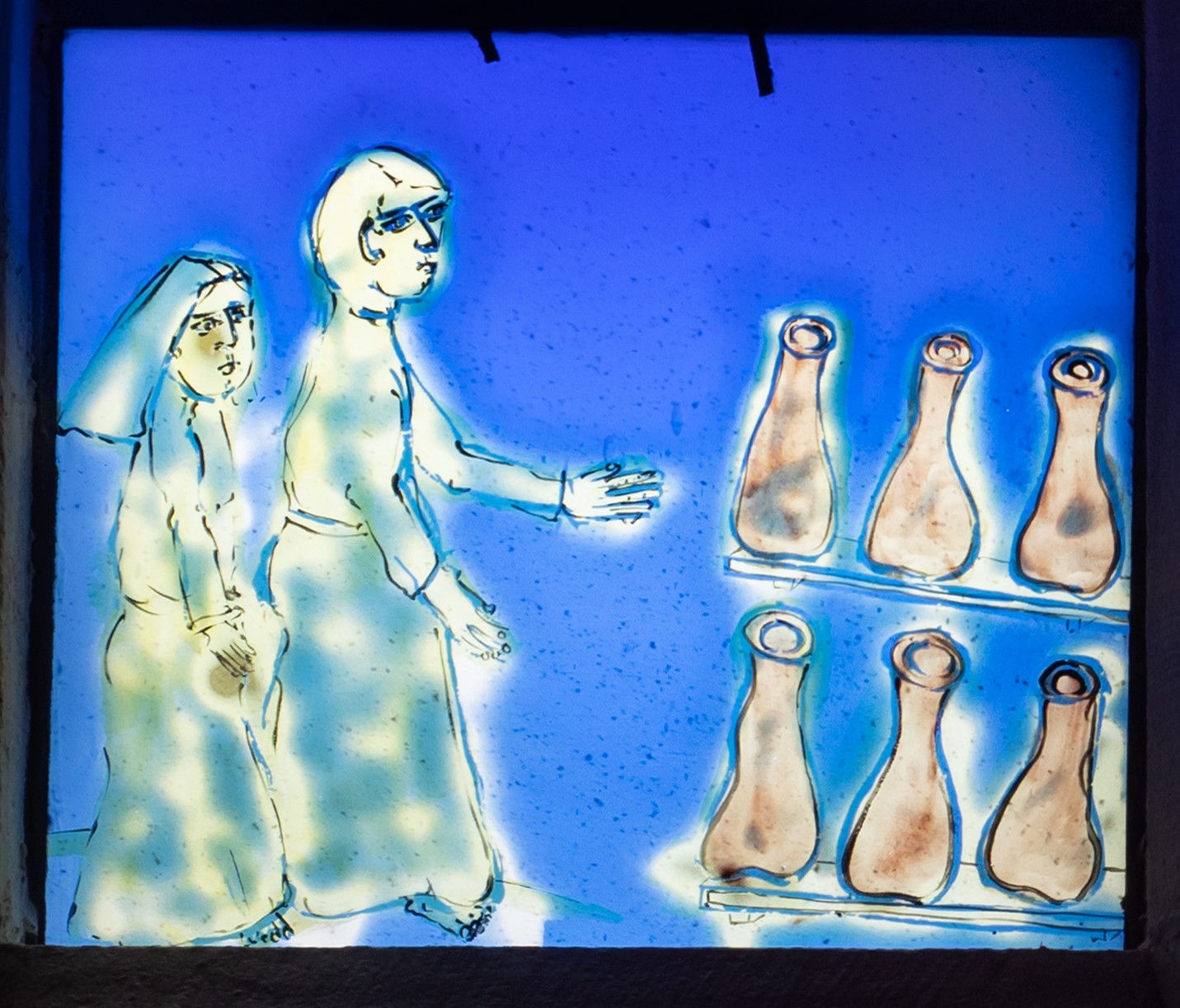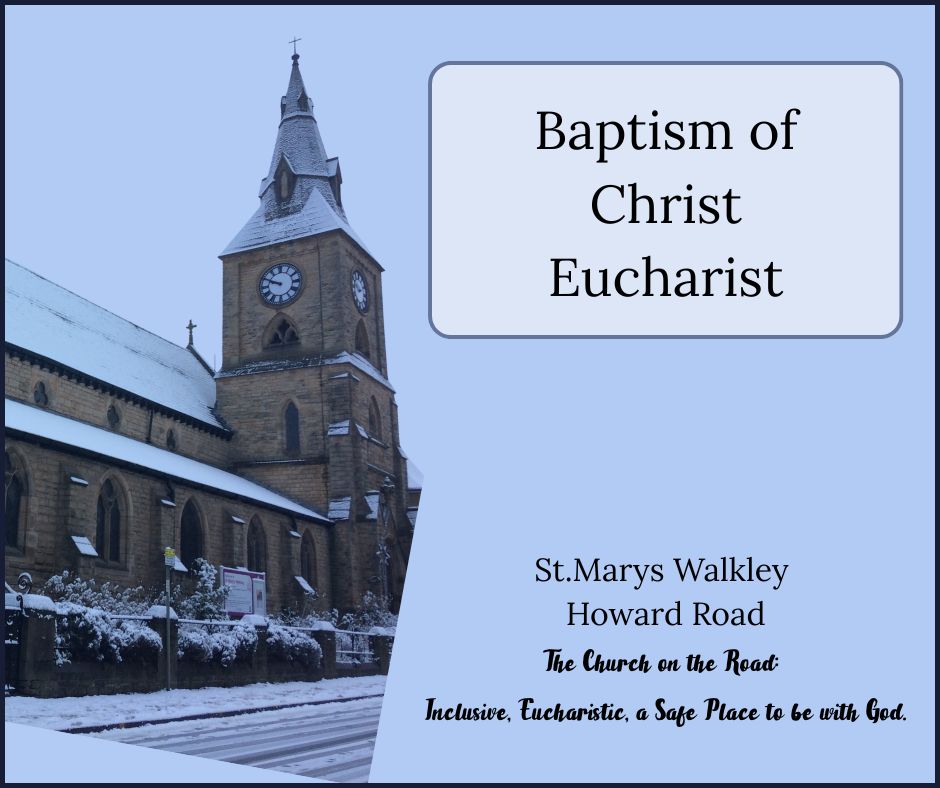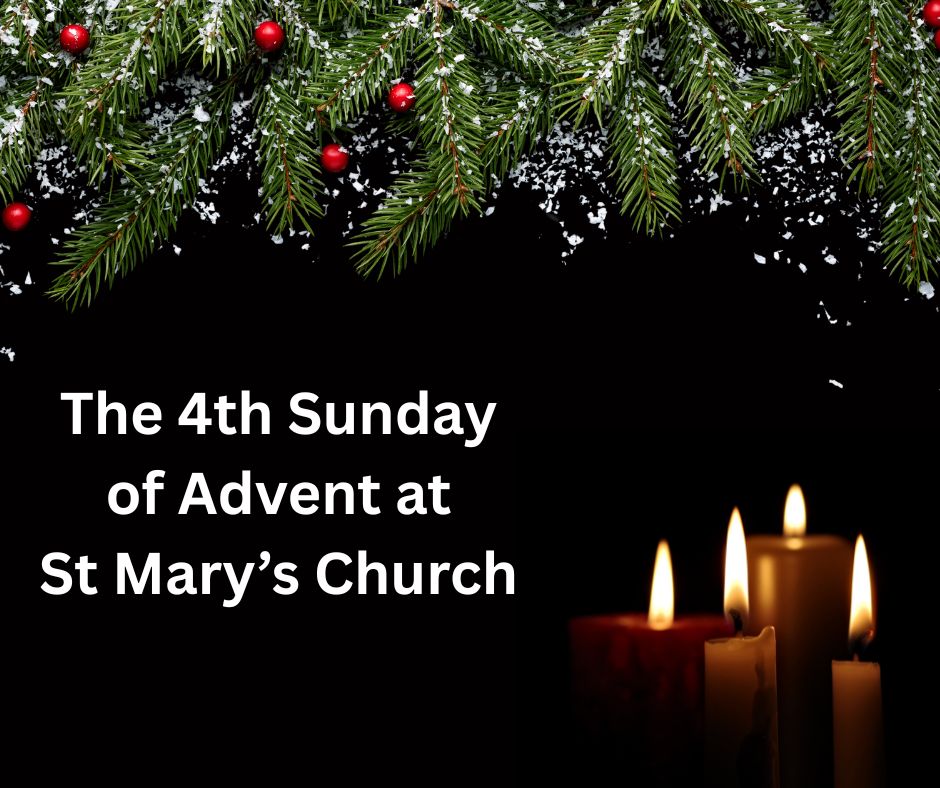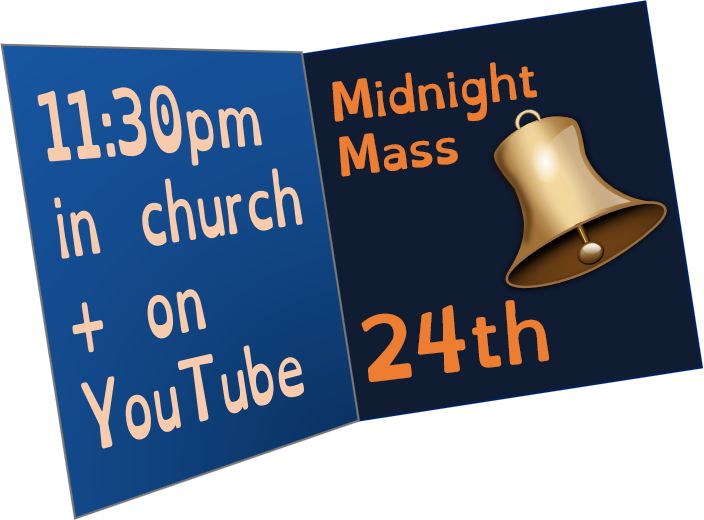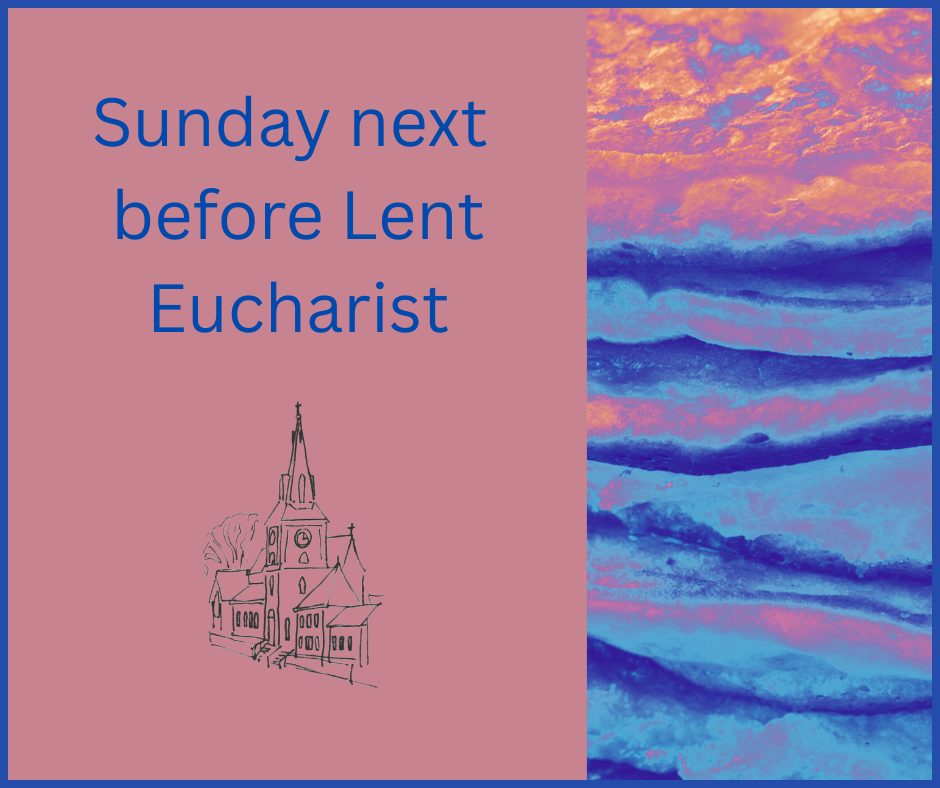
Watch this week's service on YouTube
Download the order of service here - 26 02 15 Sunday next before Lent Eucharist
Read this week's Church News
The Readings.
Exodus 24.12-end
The Lord said to Moses, ‘Come up to me on the mountain, and wait there; and I will give you the tablets of stone, with the law and the commandment, which I have written for their instruction.’ So Moses set out with his assistant Joshua, and Moses went up into the mountain of God. To the elders he had said, ‘Wait here for us, until we come to you again; for Aaron and Hur are with you; whoever has a dispute may go to them.’
Then Moses went up on the mountain, and the cloud covered the mountain. The glory of the Lord settled on Mount Sinai, and the cloud covered it for six days; on the seventh day he called to Moses out of the cloud. Now the appearance of the glory of the Lord was like a devouring fire on the top of the mountain in the sight of the people of Israel. Moses entered the cloud, and went up on the mountain. Moses was on the mountain for forty days and forty nights.
Matthew 17.1-9
Six days later, Jesus took with him Peter and James and his brother John and led them up a high mountain, by themselves. And he was transfigured before them, and his face shone like the sun, and his clothes became dazzling white. Suddenly there appeared to them Moses and Elijah, talking with him. Then Peter said to Jesus, “Lord, it is good for us to be here; if you wish, I will make three dwellings here, one for you, one for Moses, and one for Elijah.” While he was still speaking, suddenly a bright cloud overshadowed them, and from the cloud a voice said, “This is my Son, the Beloved; with him I am well pleased; listen to him!” When the disciples heard this, they fell to the ground and were overcome by fear. But Jesus came and touched them, saying, “Get up and do not be afraid.” And when they looked up, they saw no one except Jesus himself alone. As they were coming down the mountain, Jesus ordered them, “Tell no one about the vision until after the Son of Man has been raised from the dead.”
The Sermon
Prepared by Catherine, Reader at St Mary's.
The book of Exodus is one of my favourite books in the Bible. The overarching
narrative tells of Israel’s rescue from slavery in Egypt, her time in the
wilderness on their way to the land of Canaan, and finally her instructions from
God on how to live and how to worship.
But it’s full of smaller stories along the way, any one of which could derail
God’s wider plan for Israel. And it’s told by a master storyteller, which makes
it a really gripping read.
Some of these stories are told in great detail – for example the plagues and the
escape from Egypt.
And some stories are so brief, that if you’re not careful, you’ll miss important
information. Today’s is one such story.
The Israelites have now been in the wilderness for some time. Sustained by
manna and quails, they have moved from place to place, guided by a pillar of
cloud during the day and of fire by night. There have been grumbles and
squabbles but the people are still reliant on Moses, their leader. Moses, in turn,
has been reliant on God, going up and down the mountain for instruction.
Now God calls Moses to the mountain again. Moses must wait there. Then he
will receive the tablets of stone on which will be written the law for the
instruction of Israel. Moses goes, taking Joshua with him. He appoints Aaron,
his brother, and Hur as deputy leaders, telling the elders that they will sort out
any disputes. There’s a certain irony dropped casually into the story here, but I
won’t spoil things – read on into chapter 32 if you want to find out why...
Moses goes up onto the mountain and is covered by cloud. The glory of the
LORD settles on the mountain for six days. Moses has to wait. Meanwhile, all
the people of Israel see from afar is a devouring fire on top of the mountain.
I wonder what they are thinking?
On the seventh day God calls Moses from the cloud. Moses enters the cloud
and continues up the mountain. He’s there for a very long time – forty days
and nights.
And that’s where today’s reading ends.
I’d love you to read the whole book. I hope you find it as exciting and
dramatic as I do. But let’s focus on today’s section.
Moses must wait. For six days he stands on the mountain; God takes his time
to speak. Only when God is ready, does he call Moses further up the mountain,
into the cloud. Moses knows something of what will happen next and trusts
that all will be well. But I imagine it must have been pretty awesome and
terrifying for him regardless. He’s only had to wait 6 days. The next 34 days
he’s kept busy listening to God.
The Israelites must wait. It’s harder for them. Their wait is almost 7 times
longer. They can only see things at a distance. They’ve seen Moses and Joshua
go up the mountain. They’ve seen a devouring fire at the top of the mountain.
They can’t see Moses. They don’t know what is going on.
The wilderness is already a tough place to live. The Israelites have been
struggling. And now their leader has vanished. Forty days and nights is a long
time when you don’t know what is going on. Has that strange and terrifying
fire devoured him? Will he ever come back? Gradually, things are becoming
less and less certain. It’s not comfortable.
What can we take away from this passage?
Well, times of waiting and uncertainty have been a part of human existence
throughout history. It’s no different today. Times of waiting and uncertainty
happen in any family, workplace, community, church, country and globally.
They are nearly always unsettling, especially for the majority who are not in
leadership roles. Much of the time we can relate far more to the everyday
Israelite than we can to Moses.
So what can we do in times of waiting and uncertainty?
Well, God revealed his plans to Moses only a step at a time. Moses kept open
and alert to God and was ready to respond when God called him. He didn’t
know what was coming next, but trusted that God would show him the next
step. Let us do the same.
And whenever any of us are in leadership positions in our lives, let us also be
open and alert to the voices and needs of those who are not. Let us be mindful
that for others, things might be very uncertain indeed. Let us pray for God’s
guidance to help us communicate effectively and in love.
And, as we move towards Lent, let us pray for growth as individuals and
community during such times of waiting and uncertainty.
The Prayers
Prepared by David, Reader at St Mary's.
Common Worship: Times and Seasons, material from which is used here is copyright (c) 2010 The Archbishops' Council


